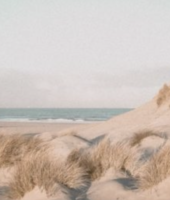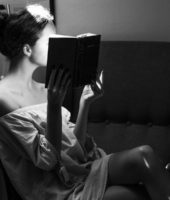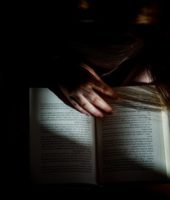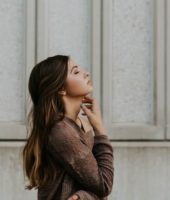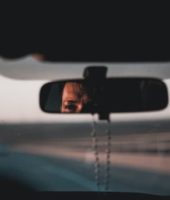I came to poetry late. More than anything, I wanted to be a novelist. Don’t get me wrong, I have always loved reading poetry. But I never understood it. What made a poem? When is it just prose rearranged, or found words, or the most baffling of all forms, the prose poem?
The turning point took place on a bench next to the Thames, in Oxford, England. I had qualified for a creative writing tutorial while I was studying abroad. Luck of luck, I was the odd student out, meaning that I met with my Professor one-on-one every week. That particular afternoon, he was holding me to task.
“Describe what’s around you,” he commanded.
I wrote out a few lines that seemed poetic, about emerald moss and wispy clouds. He shook his head, disappointed.
“Is this moss actually emerald? Is that the best way to describe it?”
It wasn’t emerald, and it wasn’t the best way to describe it. I closed my eyes, thought about the little things. I wrote a line about the bumpy iron beams of the bridge nearby, comparing them to goosebumps.
He smiled. “This is it. When I read that line, I knew exactly what you were talking about, but I had never seen it that way before.”
Finally, I got it. Poetry was making someone see something ordinary as if they’ve never seen it before.
For the next decade, I wrote poem after poem, honing my skill. I got it down to an art. In thirty-three words, I could describe the act of eating an orange and win prizes for it. I wrote tiny, tightly-knit poems about tiny, meaningless things. But in 2015, everything changed.
It started as a sharp and unexpected pain in my abdomen. I was told it was an ovarian cyst. Over the next two weeks, I experienced pain like nothing I had ever felt before. I was shaking, almost incoherent, when my gynecologist apologized and said she should have recommended surgery from the start. What had appeared on ultrasound to be a five centimeter cyst turned out to be a softball sized endometrioma.
My recovery was slow. I felt a hollow where my ovary had been. And long after the scars had begun to fade, the pain kept coming back. I went from a fairly healthy and active twenty-eight year old to a chronic pain patient.
I didn’t have the stomach for pretty little poems anymore.
The flare ups continued. I had a second surgery. I did multiple rounds of physical therapy, tried half a dozen medication routines, learned to redefine a ten on the pain scale, and then to redefine it again. I started to get better.
I started dating again. And then I found myself lying on my couch, trying to explain to my terrified new girlfriend that if I could just wait until the pain got a little worse I would hit the river and I wouldn’t be able to feel it anymore.
When that flare up finally burned down to embers, my girlfriend asked me what I meant by “the river.” I told her my theory: that once you reach a certain amount of pain, your brain can’t handle it anymore and starts to shut things down. I wouldn’t pass out. Instead I would feel peaceful, like I was floating on wide waters.
“You should write about that,” she said.
I didn’t. Not just then. But eventually it happened. I didn’t watch how many words I used, or how often. I didn’t try to make anything special and shining. I wrote because the pain was too much, and too familiar, and I couldn’t get to sleep. In the morning, I had something new. It wasn’t pretty. It wasn’t “art.” But I felt good about it.
That poem ended up being the first piece I had published in print. On its publication date, I hesitantly shared a link on my Facebook page. I was blown away by the responses.
What I had written wasn’t “art” in the way that I had learned it. But it connected with people, friends of friends and people I’d never spoken to before. People with endometriosis, people with fibromyalgia, people getting their first glimpse into the world of chronic pain.
It wasn’t “art,” but it had done something unexpected. It made people see something they knew in a totally different way.
This was my lesson. Those tight-knit poems may have been beautiful, but they didn’t mean anything. Now, I write from a place of vulnerability. Sometimes it works, sometimes it doesn’t.
It’s never “art.” But if it helps one person see their own reflection in a new light, then I know I’ve written poetry.

